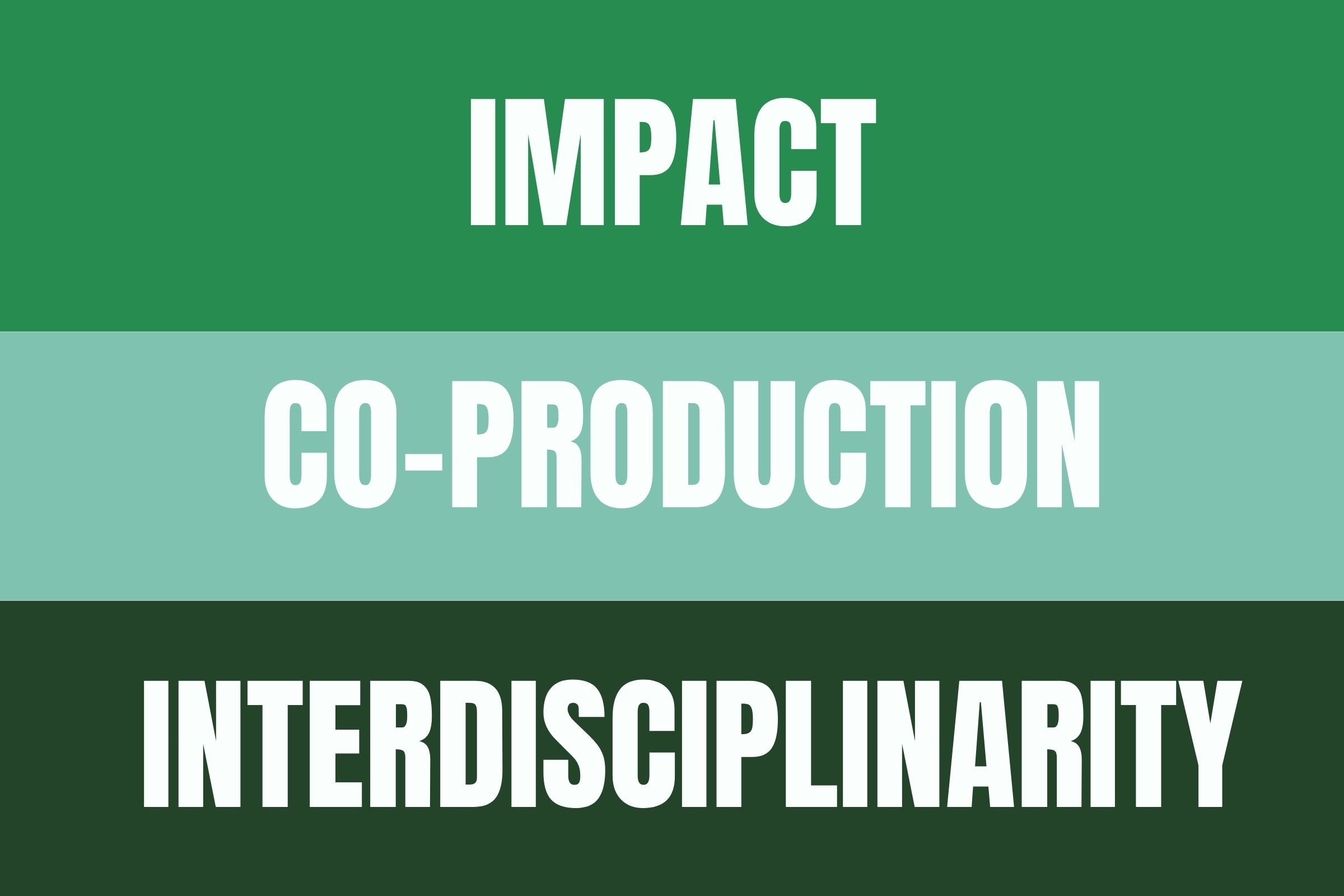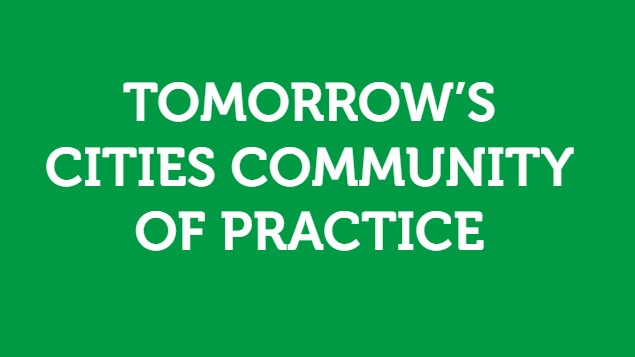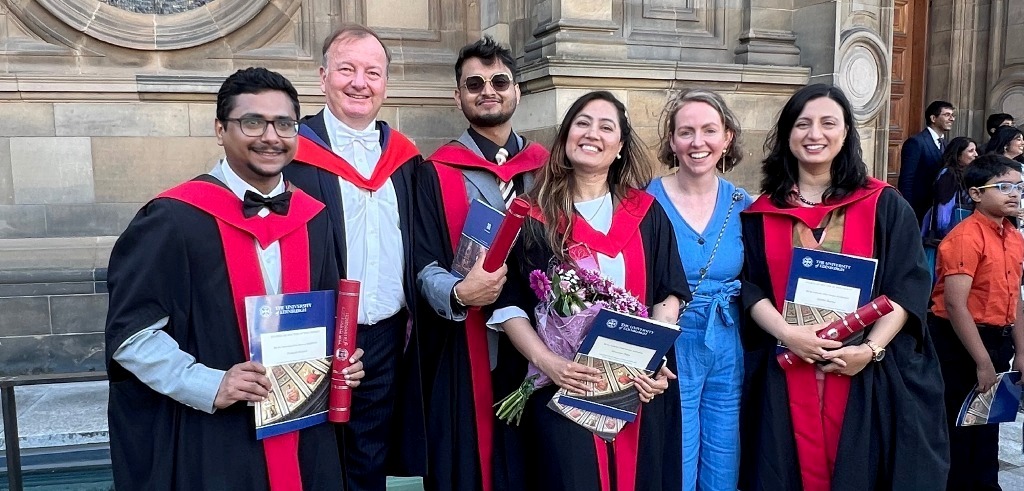
- Close
19/09/2023 | Global
Catalysing Change: Enhancing Impact in International Development and Disaster Risk Reduction Research

Tomorrow’s Cities researchers highlight the urgent need for international development and disaster risk reduction research to be impactful, collaboratively produced, and interdisciplinary in nature.
 Tomorrow’s Cities co-creation process in action in Rapti, Nepal. Here, members of a migrant community share their vision of the future with the guidance of Tomorrow’s Cities facilitators.
Tomorrow’s Cities co-creation process in action in Rapti, Nepal. Here, members of a migrant community share their vision of the future with the guidance of Tomorrow’s Cities facilitators.
Research in the intersection of international development, disaster risk reduction (DRR), and climate change adaptation (CCA) is vast, with researchers and research funders often claiming that their work is impactful, collaboratively produced and interdisciplinary. But do these assertations hold true? That’s the question Mark Pelling, Professor of Risk and Disaster Reduction, Institute of Risk and Disaster Reduction, University College London and Tomorrow’s Cities co-director, and his colleagues looked to answer on recently published review of the research practice in those areas.
Carried out within the framework of the UK Disasters Research Group of funders and the UK Alliance for Disaster Research, and set against the backdrop of the mid-term evaluation of the Sendai Framework for Disaster Risk Reduction and the culmination of a substantial UK government funding cycle, the study, published in the International Journal for Disaster Risk Reduction, delves into the current landscape, identifies obstacles, and outlines future directions for research in the realms of international development and disaster risk reduction, with a particular focus on the UK’s role in this critical domain.
Impact, Co-Production and Interdisciplinarity
Written in collaboration with other researchers from dozens of institutions, including include Tanvi Deshpande from the London School of Economics and Political Science, and Amy Donovan from the University of Cambridge, both Tomorrow’s Cities researchers, the article examined three key aspects related to international development and disaster risk reduction research – impact, co-production and interdisciplinarity – and provides solutions to improve each.
Starting with “Impact”, the study analysed how international development and DRR research outcomes contribute to real-world positive changes, suggesting that narrative-based communication, open-learning, aligning research with policy objectives and introducing flexible funding mechanisms that support research during crises, will improve research’s impact.
In “Coproduction”, Pelling and colleagues looked at the extent to which the research in involves collaboration and partnerships with various stakeholders, including communities, organizations, and policymakers. They suggest that unlike traditional practice, where topics are chosen by researchers based on their interests, research should be driven by the specific needs and requirements of stakeholders or end-users, such as policymakers and practitioners.
“We believe that research should focus on making a real difference in the real world. Researchers should be open to trying new and creative ways of working and make sure that power-imbalances, especially in countries with fewer resources, are addressed. This will ensure equitable collaboration between researchers and various stakeholders, ultimately improving the production of knowledge and its impact.”
– Mark Pelling, Professor of Risk and Disaster Reduction, Institute of Risk and Disaster Reduction, University College London and Tomorrow’s Cities co-director
 Mark Pelling, Professor of Risk and Disaster Reduction, Institute of Risk and Disaster Reduction, University College London and Tomorrow’s Cities co-director.
Mark Pelling, Professor of Risk and Disaster Reduction, Institute of Risk and Disaster Reduction, University College London and Tomorrow’s Cities co-director.
Finally, the article explored the degree to which international development and DRR research integrates knowledge and approaches from different academic disciplines- Acknowledging the significance of interdisciplinary approaches in tackling intricate issues, the article suggests several solutions. These include the creation of a national organization dedicated to Interdisciplinary Sciences, a body to champion and facilitate interdisciplinary research, emphasizing diversity, equality, and inclusion. It would also offer institutional leadership and financial support while nurturing future research leaders equipped with interdisciplinary expertise.
Tomorrow’s Cities is at the forefront of change.
Since its inception, the Tomorrow’s Cities Hub has been at the forefront of innovation and actively implementing these recommendations. While working in four rapidly growing mega cities of the Global South: Istanbul, Kathmandu, Nairobi, and Quito, the Hub’s primary focus has been on the development and implementation of our groundbreaking disaster risk reduction framework, the Tomorrow’s Cities Decision Support Environment.
Unlike conventional risk models, our framework not only harnesses the power of interdisciplinarity – employing methods from the social and earth sciences – but uses a collaborative approach, actively involving local stakeholders in the co-production of knowledge, while addressing real problems faced by the communities. Giving voice not only to the planning authorities, municipalities, the government and the private sector, but also to the communities who will live in the future cities where we are conducting our work, Tomorrow’s Cities is reducing vulnerabilities, promoting equity and inclusion, fostering global cooperation, improving policymaking, and driving innovation in the fields of disaster risk reduction and climate change adaptation.



